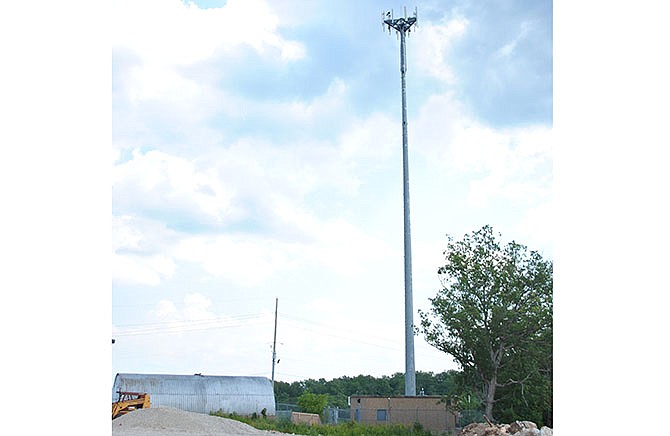LAKE OZARK, Mo. -- Just a day before a new state law was to take effect, Lake Ozark officials enacted a moratorium on the construction of new communications towers within the town.
"When the governor signed Senate Bill 650, it virtually took away our right to govern where communication towers are built inside the town," said Lake Ozark City Administrator Dave Van Dee. "So we had to do something in order to rewrite our old ordinance, which governed the number and type of communications towers that could be built in town."
Passed and signed into law by Missouri Gov. Jay Nixon earlier this year, the law makes city ordinances limit the number and type of communication towers that could be built within a city's limits.
Backed by the Missouri Municipal League, several local cities, including Lake Ozark and Osage Beach, fought against passage of the bill during last spring's legislative session.
Lake Ozark, like several other Lake of the Ozarks area communities, had ordinances in place that limited how many towers could be built inside the town, as well as where the towers could be placed and how high they could be.
Some of the concerns expressed by Lake Ozark officials and other city officials were that expansion of current wireless equipment could add as much as 20 feet in height to existing towers and that wireless companies wishing to build towers inside a town would not be governed by existing zoning ordinances.
The new law, which went into effect Aug. 28, exempts communications companies from holding public hearings prior to constructing communications towers or adding to existing ones in most Missouri towns.
According to the Missouri Municipal League, the new law exempts the wireless providers from "all zoning design or placement requirements or public hearings" when constructing communications towers.
Van Dee said for several years the town had an ordinance in place that controlled the location and size of communications towers, but when Senate Bill 650 was signed into law it made the ordinance obsolete.
"Basically, the new law says our old ordinance is no longer valid, which leaves us with no way to regulate communication towers," Van Dee said. "So the Board approved a six month moratorium on construction of new towers within the city in order to give ourselves time to study the situation and compose a replacement ordinance."
Van Dee said the city had already permitted the construction of one new tower prior to the passage of the new law and that company will be allowed to go ahead with construction. However, no other communications companies will be issued a permit during the six-month period.
According to information supplied to Lake Ozark by the Missouri Municipal League, the new law changes the way in which communications towers may be built by exempting them from zoning laws and shortening the time period in which a community may delay issuing a building permit before a new tower is built.
According to the Municipal League document under the terms of the new law, city officials will have only 15 days from the time they receive an application for a new tower until the permit must be issued.
"The timetable presented is unrealistic and unworkable for municipalities. Very few, if any, would be able to accommodate the extremely short timeframe created in the event that an applicant submits a deficient application and then submits a revised application 15 days later," the Municipal League wrote in the document.
Van Dee said the new law takes away the town's ability to control the proliferation of communication towers within its borders, making previous zoning ordinances obsolete, which were "designed to protect the quality of life for town residents."
"Nevertheless, we have to comply with state law," he said. "So we put the moratorium in place to give us time to study the situation and rewrite our ordinance in such a way that it complies with state law and still protects the rights of our citizens."

